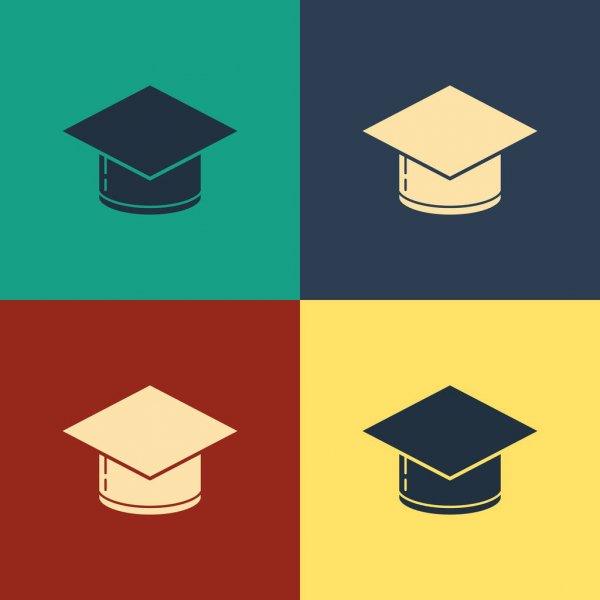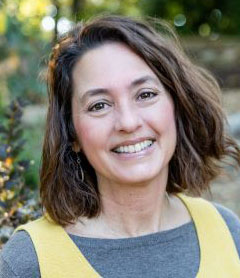One of the best pieces of creative advice I’ve ever read was this:
“The best ideas come as jokes. Make your thinking as funny as possible.”
— David Ogilvy, the “father of advertising”
And so, not only do I lean into my humor on the regular, but I make sure to follow that advice in formal brainstorming sessions without fear.
I pay attention to my first reactions — my wisecracks. There’s usually an insight wrapped in the joke.
For example:
When a core team of Virginia Western faculty and staff gathered as part of our G3 design thinking sessions in 2019, I presented an idea that made most of us laugh out loud:

What if we created Hogwarts houses?
Now, I didn’t mean we should literally violate Warner Bros. trademarks.
The Harry Potter analogy helped me communicate the power of student cohorts — about creating distinct “houses,” perhaps with their own colors or symbols. A framework to help students build peer relationships within smaller groups, creating a sense of belonging.
Just think about how powerful those houses have been in our popular culture.
(I’m Ravenclaw, if you’re curious.)
My half-baked Hogwarts idea didn’t get any traction with our G3 project, but the concept still pops up in conversations around the college, especially when I learned about this new position that is accepting applications until June 21.
The college is hiring a part-time Fralin Futures Student Success Coach to help students who have received a Fralin Futures STEM-H scholarship through Virginia Western’s Educational Foundation.
The goal is to get these students to the finish line: Graduation and a job in the STEM-H field.
Natasha Lee, our Student Activities Coordinator, has served as an excellent “guide by the side” for these students for the past two years. But now that the cohort has grown to more than 30 students, Virginia Western wants to keep building on her success with a more formal role.
The position will support a cohort of Fralin Futures scholarship recipients by:
1) Organizing career and leadership activities that are relevant for a STEM-H cohort;
2) Establishing a tailored STEM-H mentorship program in coordination with the Hall Associates Career Center and
3) Providing a central point of contact to assist students and help them successfully navigate available resources at the College.
When I read this description, I thought about those Hogwarts houses again — and not just as a potential cohort icebreaker (“Which Hogwarts house do you belong in?”).
This cohort wizard would go beyond one-on-one coaching, helping to build a constellation of relationships at the college, inside and out. What a great opportunity to help foster a supportive “house” of belonging for these motivated students.
Here are a few things to keep in mind if you pass this link to a friend or family member:
- The position is part-time.
- The minimum hourly rate is $12.98 per hour.
- The position is funded for two years as a pilot, with an anticipated end date of June 2023.
Do you know anyone who could make some STEM-H magic? Then please share the link: https://jobs.vccs.edu/postings/33957. Applications will be accepted until June 21.
Learn more about the Fralin Futures STEM-H Scholarships here.
Ways to increase a sense of belonging
Beyond this success coach position, here are a few ways to increase a sense of belonging across campus. I plucked these pointers from the May 2021 guidebook just released by Achieving the Dream (ATD) and the Advising Success Network: Knowing Our Students: Understanding & Designing for Success.
- Normalize support for all students. “This is a culture shift so it is assumed all students will access support rather than feeling stigmatized or not as strong a scholar when they access support.”
- Work within departments to ensure all students have connections to at least one faculty member. “The ideal student experience includes at least one person on campus that knows the student well and can connect them to supports. The more relationships that faculty and staff can build with students, the more students will succeed.”
- Use orientations to teach students about the importance of connection.
- And don’t forget the examples that are already happening at Virginia Western.
ATD is hosting a free, public webinar about the guidebook on Thursday, June 10. Register for Knowing Our Students: Designing an Experience That Serves Students Holistically.
More *free* professional learning opportunities
Basic Needs Insecurity Among Virginia Community College System Students: In fall 2020, over 10,000 Virginia Community College System (VCCS) students — including Virginia Western students — participated in the Hope Center’s #RealCollege Survey. Virginia Western’s report is here. The survey assessed students’ basic needs security and their well-being, as indicated by employment status, academic engagement, and mental health. It also explored the impacts of the pandemic, which challenged VCCS students, faculty, and staff in new ways. Hear about the survey results and VCCS’s growing work to support students’ basic needs and achieve the state’s college attainment and equity goals. Webinar is Thursday, June 3, at 3:30 p.m. Register here.
The #RealCollege Virtual Journey, sponsored by the Hope Center for College, Community, and Justice. A series of online workshops and engaging activities led by experts and delivered free of charge. Upcoming topics include Designing for Care (with Jesse Stommel of Digital Pedagogy Lab) on June 2; How to Ungrade (June 9); and Investing in Community Colleges (June 9). Register here. Recordings of previous events are available by scrolling down this page.
The Future Trends Forum: Discussions about the future of education and technology with writer/futurist Bryan Alexander. June 3: How can colleges and universities better support equity by race? with Dr. Tia Brown McNair, Vice President in the Office of Diversity, Equity, and Student Success and Executive Director for the Truth, Racial Healing, and Transformation (TRHT) Campus Centers at the Association of American Colleges and Universities (AAC&U). More upcoming programs. Video recordings available on YouTube.
NSF Spring 2021 Virtual Grant Conference. Designed to give new faculty, researchers, and administrators key insights into a wide range of current issues at NSF. Program officers will be providing up-to-date information about specific funding opportunities and answering attendee questions. June 7-11. Registration is free.
Virginia’s Education Equity Summer Institute. June 15-17, 9 a.m. to 5 p.m. The Virginia Department of Education hosts this conference for Virginia educators, school leaders, education policymakers, and more. Breakout sessions and keynotes will include professional development to support Virginia’s recently expanded History and Social Science standards and the implementation of the new elective course in African American History for high school students that will launch this fall. June 15: Teaching Black History: Building Teacher Content Knowledge and Instructional Capacity. June 16: Teaching through Culturally Sustaining Pedagogies. June 17: Culturally Responsive and Inclusive Educator Practice at Four Critical Levels.
Bookmark the VCCS professional development website
Funding opportunities
- NSF: Robert Noyce Teacher Scholarship Program. Provides funding to provide scholarships, stipends, and programmatic support to recruit and prepare STEM majors and professionals to become K-12 teachers, especially in high-need school districts. Community colleges strongly encouraged to apply; however, it requires collaboration with K-12 and co-leadership with 4-year school. (due Aug. 31)
Grant starter kit
- Watch the video: 12 places to find grants
- Search Foundation Directory Online (for free through the Roanoke library)
- Email sseagle@virginiawestern.edu with questions and ideas!






 Shelley Lyons is glad to be back on campus as she is a Virginia Western alum, and has served as the Administrative Officer for Grants Administration at Virginia Western since early 2022. Prior to VWCC, her career focus was within the Human Services and Arts fields. She wrote her first grant in 1996 on a whim and has continued to plan and learn since that time. She most enjoys seeing a well-planned project come to fruition, where funder, project manager and beneficiaries can all feel success and see impact.
Shelley Lyons is glad to be back on campus as she is a Virginia Western alum, and has served as the Administrative Officer for Grants Administration at Virginia Western since early 2022. Prior to VWCC, her career focus was within the Human Services and Arts fields. She wrote her first grant in 1996 on a whim and has continued to plan and learn since that time. She most enjoys seeing a well-planned project come to fruition, where funder, project manager and beneficiaries can all feel success and see impact.